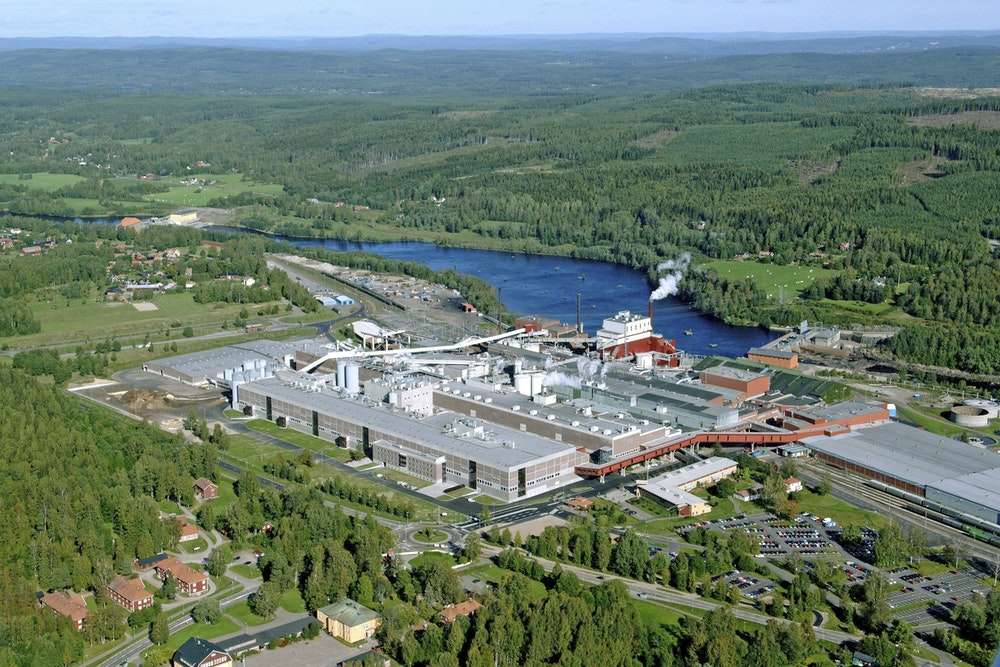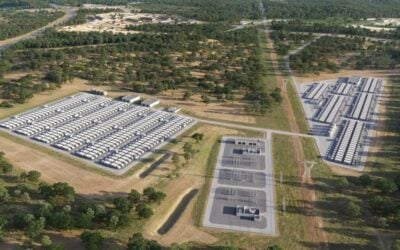
Lithium-ion battery startup Northvolt has agreed to acquire a former paper mill site in Sweden where it will develop its planned gigafactory, capable of producing 100GWh of cathode materials from late 2024.
Northvolt will purchase the Kvarnsveden pulp and paper mill and surrounding industrial area in Borlange, which closed in 2021, from Stora Enso and turn it into a manufacturing plant for active material and battery cells.
Enjoy 12 months of exclusive analysis
- Regular insight and analysis of the industry’s biggest developments
- In-depth interviews with the industry’s leading figures
- Annual digital subscription to the PV Tech Power journal
- Discounts on Solar Media’s portfolio of events, in-person and virtual
The gigafactory is expected to start operations in late 2024 and at full output will be able to produce 100GWh of cathode material annually. The facility’s production volume will contribute to all markets that Northvolt is delivering to including its battery energy storage systems (BESS) arm Northvolt Systems’ assembly plant.
Northvolt claims it has US$50 billion worth of orders already – US$14 billion from Volkswagen alone – and aims for 150GWh of annual cell production capacity by 2030. The site in Borlange will employ 1,000 people and use 100% renewable power, the company says.
Peter Carlsson, Co-Founder and CEO of Northvolt, said: “Since Northvolt’s founding, we have focused on circular battery production, but this is the first time we will reuse an entire production site. With its access to energy, industrial water and the broad production know-how in the region, Kvarnsveden is an optimal site for a gigafactory.”
The company, which has raised US$6.5 billion in enquiry financing to-date, produced its first lithium-ion cells at the turn of the year. It also announced a partnership with one of the battery energy storage sector’s largest system integrators Fluence to develop grid storage technology.
It has previously said it wants to manufacture the world’s most sustainable batteries through using renewable but also securing 50% of raw materials from recycled batteries. The company’s strategic approach to the full production value chain was praised by Fluence executive Julian Jansen at Solar Media’s Energy Storage Summit 2022 this week.
European Commission and Norwegian government step up funding for European battery value chain
Northvolt’s announcement coincides with a letter-of-intent between a European Commission body and EIT InnoEnergy to provide €10 million (US$11.26 million) in funding for the European Battery Alliance (EBA) Academy.
The Academy is a programme designed to reskill and upskill Europe’s workforce across the continent’s battery value chain to, in the announcement’s words, “stay ahead of the e-mobility curve.” It adds that 800,000 workers will need to be trained, upskilled or reskilled by 2025 to meet demand for jobs at projects in the pipeline like Northvolt’s.
EIT InnoEnergy is part of the European Institute of Innovation and Technology (EIT). It is one of Northvolt’s investors and has also funded or partnered with other players in the lithium-ion battery space including Vulcan and ElevenEs. Energy-storage.news has interviewed its industrial strategy executive Bo Normark.
Commission Vice-President Maroš Šefčovič, in charge of the European Battery Alliance, commented: “In 2017, the EU battery industry was hardly on the map. Today, Europe is a global battery hotspot, with 20 Gigafactories emerging across our Member States. By 2030, we should be manufacturing enough batteries each year to power some 11 million electric cars, moving full steam ahead towards strategic autonomy in this crucial sector.”
Alluding to recent moves by the EU to ensure higher recycled content in batteries in the continent’s market, he added: “It is also high time to adopt a new regulatory framework, ensuring that only the greenest, best performing and safest batteries make it onto the EU market.”
The government of Norway, which is part of the European Economic Area (EEA) but not the EU, also recently announced funding for a project aimed at building more sustainable batteries.
Last week, it provided a NOK100 million (US$11.3 million) grant to the ‘Sustainable Materials for the Battery Value Chain’ project. The project partners include battery startups FREYR and Morrow who received NOK39 million and NOK25 million respectively. They are joined by silicones/metals producers Elkem and Norsk Hydro and marine energy storage solution provider Corvus.
The project will cover activities throughout the entire battery value chain, from the production of active battery materials to cell production, modelling of battery degradation, safety and recycling.






